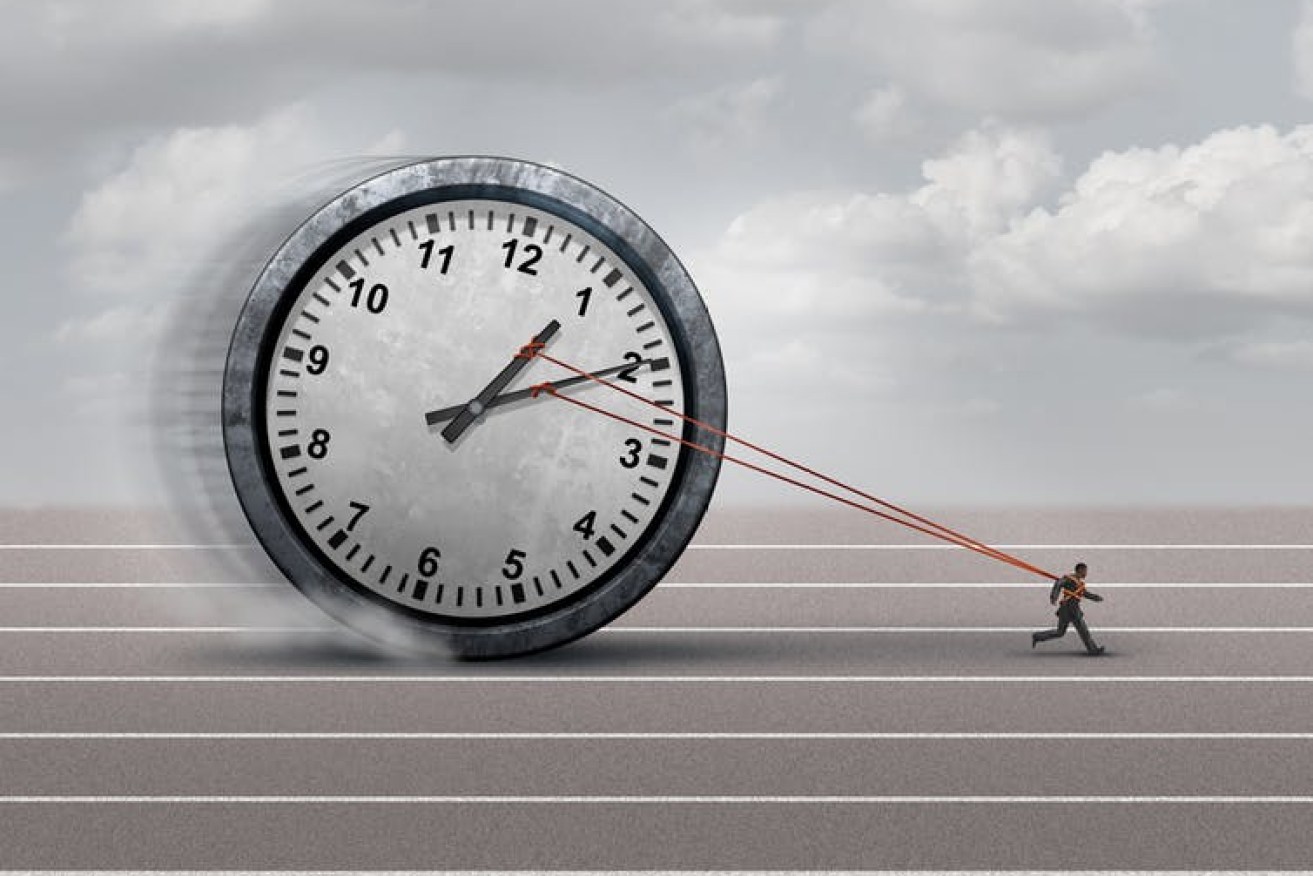Tick, tock … how stress speeds up your chromosomes’ ageing clock

At a molecular level, stresses and strains can make your body clock break into a sprint. Photo: The Conversation
Ageing is an inevitability for all living organisms, and although we still don’t know exactly why our bodies gradually grow ever more decrepit, we are starting to grasp how it happens.
Our new research, published in Ecology Letters, pinpoints factors that influence one of the most important aspects of the ageing process, at the fundamental level of our DNA.
It suggests how stress can cause the biochemical body clock built into our chromosomes to tick faster.
DNA – the genetic material in our cells – does not float freely in cells’ nuclei, but is organised into clumps called chromosomes.
When a cell divides and produces a replica of itself, it has to make a copy of its DNA, and because of the way this process works, a tiny portion is always lost at one end of each DNA molecule.
To protect vital portions of DNA from being lost in the process, the ends of chromosomes are capped with special sequences called telomeres.
These are gradually whittled away during successive cell divisions.

Telomeres (highlighted in white) are like molecular buffers for your chromosomes. Photo: US Dept of Energy Human Genome Program
This gradual loss of telomeres acts like a cellular clock: With each replication they get shorter, and at a certain point they become too short, forcing the cell into a programmed death process.
The key question is what this process, which plays out on a cellular level, actually means for our mortality.
Does the fate of individual cells really matter so much? Does the ticking telomere clock really count down the remaining time our bodies have to live?
Cellular ageing is just one of many components of ageing, but it’s one of the most important.
Gradual deterioration of our body’s tissues, and the irreversible death of our cells, are responsible for the most conspicuous effects of ageing, such as loss of physical fitness, deterioration of connective tissues leading to skin wrinkles, or neurodegenerative diseases such as Parkinson’s disease.
What makes us tick?
Another crucial question is: Are there factors that speed up or slow down the loss of our ticking telomeres?
So far, our answers to this question have been incomplete.
Studies have provided glimpses of possible mechanisms, suggesting that things like infections or even dedicating extra energy to reproduction might accelerate telomere shortening and speed up cellular ageing.
This evidence is piecemeal, but these factors all seem to have one thing in common: They cause “physiological stress”.
Broadly speaking, our cells are stressed when their biochemical processes are disrupted, either by a lack of resources or for some other reason.
If cells lose too much water, for example, we might say they are in “dehydration stress”.
More familiar types of stress also count.
Tiredness and overwork put us under chronic stress, as does feeling anxious for prolonged periods. Lack of sleep or emotional stress can alter internal cellular pathways, including telomere functioning.
With this in mind, we asked ourselves one simple question: Can various types of stress experienced by an individual actually accelerate their rate of ageing?
Stress and strain
In our research, led by my colleague Marion Chatelain of the University of Warsaw (currently University of Innsbruck), we chose to look at this question as broadly as possible.
Many studies have looked at this problem in specific species, such as mice, rats, and various fish and bird species (both wild and in the lab).
We compiled the available evidence into a summary of the existing knowledge, across all vertebrate organisms studied so far.
The emerging picture clearly suggests that telomere loss is profoundly impacted by stress.
All else being equal, stress does indeed hasten telomere loss and accelerate the internal cellular clock.
Importantly, the type of stress matters: By far the strongest negative impact is caused by pathogen infections, competition for resources, and intensive investment in reproduction.
Other stressors, such as poor diet, human disturbance or urban living, also hastened cellular ageing, although to a lesser extent.
Getting radical
A natural question arises: What makes stress exert such a powerful influence on cellular clocks? Is there a single mechanism, or many?
Our analysis may have identified one possible candidate: “Oxidative stress”.
When cells are stressed, this often manifests itself through an accumulation of oxidising molecules, such as free radicals.
Residing at the exposed ends of our chromosomes, telomeres are perfect targets for attack by these chemically reactive molecules.
Our analysis suggests that, regardless of the type of stress experienced, this oxidative stress might be the actual biochemical process that links stress and telomere loss.
As to whether this means that we should eat more antioxidants to guard our telomeres, this certainly requires more research.
I know what you’re wondering: Does this mean we have discovered the secret of ageing? Can we use this knowledge to slow the ageing process or stop it in its tracks? The short answer is no.
Ageing is too fundamental to our biology to get rid of it completely.
But our study does underline an important truth: By reducing stress, we can do our bodies a big favour.
In the modern world, it is hard to escape stress completely, but we can make everyday decisions to reduce it.
Get enough sleep, drink enough water, eat healthily and don’t push yourself too hard.
It won’t buy you eternal life, but it should keep your cells ticking along nicely.
The author thanks his colleagues Marion Chatelain and Marta Szulkin for their contributions to this article and the research on which it is based.![]()
Szymek Drobniak, DECRA Fellow, UNSW
This article is republished from The Conversation under a Creative Commons licence. Read the original article.








